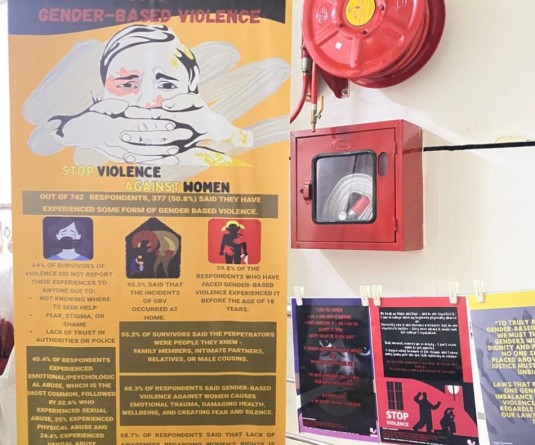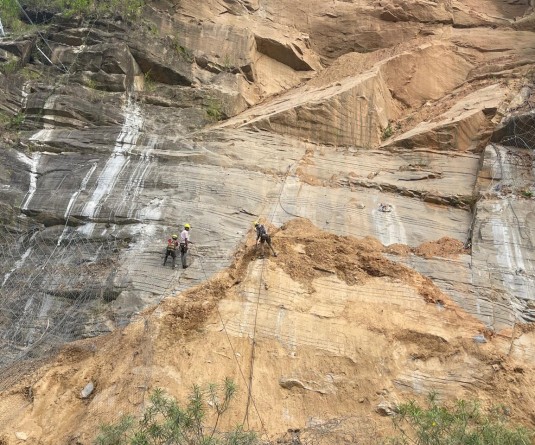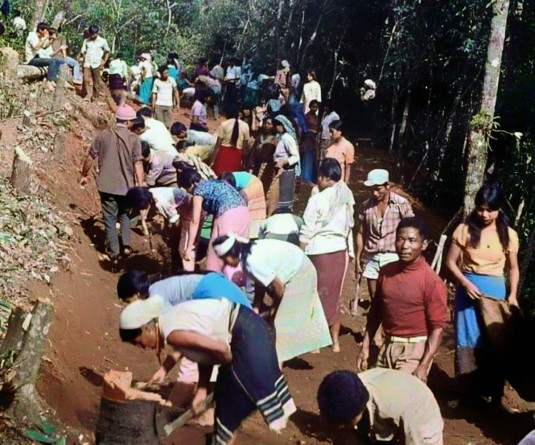
There is an attempt to silence voice of students: Naga students at JNU
Morung Express News
Dimapur | February 13
A Solidarity Public Meeting was held at the Jawaharlal Nehru University (JNU) campus today demanding the immediate and unconditional release of the JNUSU President and the end of police raj on campus.
Congress Vice President Rahul Gandhi, CPI-M General Secretary Sitaram Yechury and CPI Secretary D. Raja also joined the Meeting on Saturday. According to the sources at JNU, today’s was one of the biggest public meetings in JNU’s history.
On February 9, a group of individuals from JNU organised a cultural evening on February 9, entitled ‘A Country without a Post Office’ protesting the “judicial killing of Afzal Guru and Maqbool Bhat.”
During the event, it was alleged that “anti-national” and “divisive” slogans were raised. Since then the controversy has erupted into a full-fledged attack on JNU.
The police on February 12 arrested the Jawaharlal Nehru University Students Union (JNUSU) President Kanhaiya Kumar on charges of sedition and started, what many are calling, a “witch-hunt” to curtail freedom of speech at campuses as well as growing intolerance for dissent in the country.
Eight other students were debarred from academic activities by JNU pending a disciplinary enquiry into the event. Home Minister Rajnath Singh and HRD Minister Smriti Irani have both asserted that strict action will be taken against the demonstrators and said that 'anti-national' elements will not be tolerated.
‘Attack on democratic ethos’
Attending today’s Solidarity Public Meeting were also students from Nagaland who voiced concerns.
Tiamongla Imchen, an MPhil student at the Centre for South Asian Studies and a student activist said the police crackdown was an “attack on the democratic ethos and space of the university.”
“It is a politically strategic tactical attack on the freedom of speech and expression and a means to affirm the idea of nationalism of a few with misappropriate attention by media,” she said.
According to Dr. Ilito Achumi, a JNU alumni, the terms “national” and “anti-national” are being defined on the basis of “whether the definition per se is conveniently fitting into the present oppressive regime of India.”
“One may not forget that there are thousands of ways to express one's Nationalism. JNU is just one of the many incidents that posits an effort vehemently carried out to curb the democratic ethos of the university, to instill fear and to suppress the various voices in the Indian educational institutions,” she maintained.
For Thepfulhoukho Kuotsu, a PhD Scholar at the Centre for Philosophy, the incident is pre-meditated.
“It is an attack on the University by the BJP-led Government in order to silence the voice of the students so that they can carry their national project which is a real threat to democracy,” he opined.
There are around 60-70 students from Nagaland in JNU.
“The whole situation has been engineered by some groups to flare up tension and assault the freedom of expression, which is otherwise the right of not just students of JNU (in this case) but every citizen of the country. The media too, which is supposed to be neutral and not take any position has fallen into cheap jingoism. Pune, Hyderabad and JNU, all of them have been attacked by the same forces,” said Honjem Konyak, an MPhil student at the Centre for Historical Studies, JNU.
A former student and presently a faculty in Delhi University, Kaustabh Deka said, “In these rabid assertion/counter-assertion around claims of 'nationalism/patriotism' in JNU campus a crucial point needs to emphasised that JNU campus has been a home most precious to the ever growing student population from Northeast India.”
A sentiment shared by around 500-600 student from Northeast in JNU. “The campus has always provided us from the northeast the much needed welcoming shelter and acceptance in the otherwise 'hostile' city of Delhi. For the many from the remote region and diverse backgrounds, it is nothing but the affordable hostels and fee structure, especially in a 'liberal' set up where differences in food and life-style are 'largely accepted', that has made the dream of quality higher education a reality.”
Steps ahead
Earlier, the JNU Teacher’s Association (JNUTA) following its Emergency Meeting, expressing deep concern on the recent developments, asserted that “JNU has always been a University where there has been a vibrant democratic culture, where diverse political ideological and academic views have engaged with each other in a spirit of peaceful dialogue and debate.”
During the solidarity meeting, the JNU community comprising of Faculties, students and karamcharis joined hand to draft three demands:
- To release the JNUSU president immediately and unconditionally
- To stop witch-hunting of students inside the autonomous campus
- Removal of police forces from the University premises.
It also strongly condemned the biased national media reporting on the issue. Meanwhile the right wing student body ABVP attempted to disturb the peace meeting by shouting slogans throughout the three hours long meeting.
Following the meeting, the joint students-teachers forum decided to conduct indefinite university strike until the release of the President and also called for formation of human chain in solidarity with student movements to bring normalcy back to the University.
Meanwhile, Delhi Chief Minister Arvind Kejriwal on Saturday ordered a magisterial inquiry into the JNU incident where anti-India slogans are said to have been raised, IANS reported.






